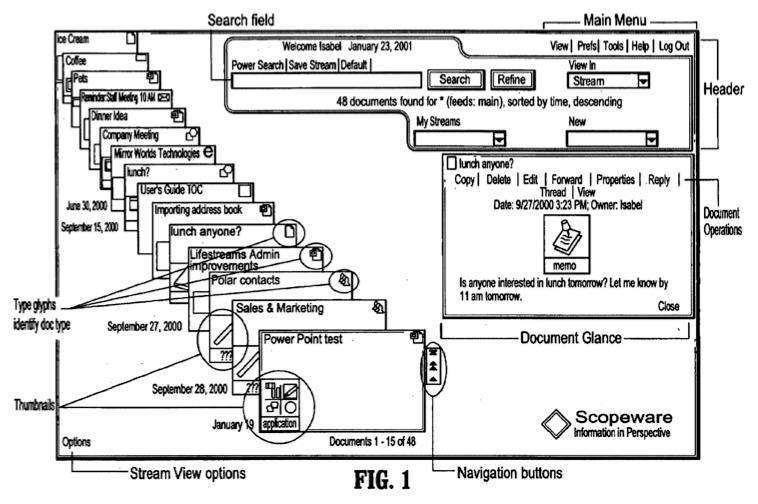Apple has agreed to pay $25 million to non-practicing entity Network-1 Technologies to settle a patent infringement lawsuit over technology relating to iTunes Cover Flow and OS X search features including Spotlight and Time Machine.
In an announcement on Friday, Network-1 said Apple's payout brings an end to litigation over the alleged violation of U.S. Patent No. 6,006,227 for a "Document Stream Operating System," a piece of IP purchased by Network-1 from Mirror World Technologies. Apple will receive a paid non-exclusive license to use technology detailed in the '227 patent, as well as access to other patents in Network-1's portfolio of acquired IP originally developed by Cox and Mirror Worlds.
The $25 million settlement comes after a years-long court battle dating back to 2008, when Mirror Worlds filed suit in the patent holder-friendly Eastern District Court of Texas against Apple for infringing on four patents. The original complaint leveraged patents describing "streams" of information in a computer system, embodiments of which are similar to Cover Flow and Time Machine.
The '227 patent applicable to today's settlement was invented by Yale professor named David Gelernter, whose work was continued by doctoral student Eric Freeman prior to the Patent and Trademark Office's grant in 1999. Gelernter's research into so-called "lifestreaming" technology goes back to the 1990s and is similar in function to certain Apple products. Network-1 purchased Mirror Worlds' portfolio containing nine granted patents and five patent applications in 2013.
An initial jury trial leveraging four Mirror Worlds patents resulted in a $625 million judgment against Apple in 2010, but the company successfully appealed that ruling six months later. Today's settlement relates to a single patent included in the original complaint.
 Mikey Campbell
Mikey Campbell








 Christine McKee
Christine McKee
 Malcolm Owen
Malcolm Owen

 Charles Martin
Charles Martin


 Mike Wuerthele
Mike Wuerthele



-m.jpg)






13 Comments
Apple gets sued for $625 million but winds up paying only $25 million for a license? Way to go Apple lawyers! Well done.
The more you see cases like this, the more it makes you realise how much the IP system has failed to protect Apple. Patents like these are vague and obvious, basically coming down to the idea of presenting sorted information. For the patent holder, it's really a case of "who can we sue that has lots of money?" - since just about every company that works with interfaces will have infringed this patent. And yet on the other hand we have companies like Samsung who even went so far as to extensively detail their exact plans of copying the iPhone and they've basically had minimal consequences to that, now even with influence that has somehow even got the attention of the supreme court. What a clear sign of a broken IP system.
This is just business, folks. Nothing more, nothing less. Let's move on. Nothing to see here.
Clearly patent reform is needed.